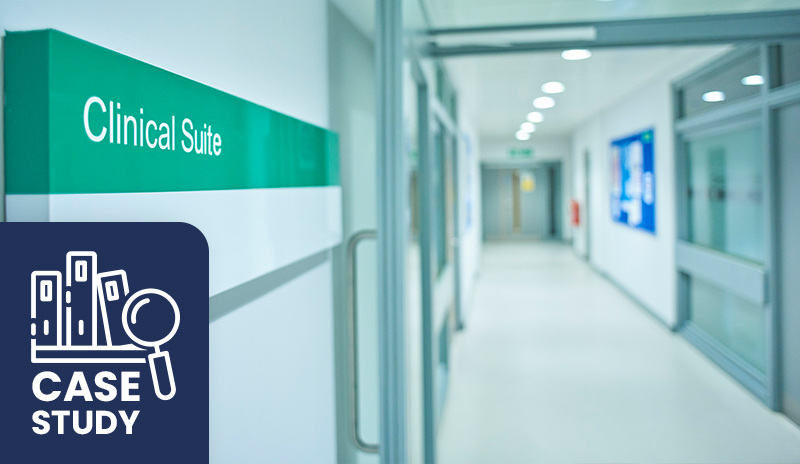
Introduction
The Client, a large hospital complex in central England, provides major treatment and emergency services for the surrounding area. With a constant need to manage costs effectively, the hospital sought to implement a robust energy monitoring system to gain better control over its energy usage and reduce operational expenses.
Challenges
The hospital faced several key challenges:
Cost Management: The need to continuously reduce operational costs while maintaining high standards of patient care and services.
Energy Efficiency: Identifying and addressing areas of energy wastage to improve overall efficiency.
Real-time Data Monitoring: Implementing a system that provides accurate, real-time data to facilitate informed decision-making.
Solution
To address these challenges, the hospital decided to install an advanced energy monitoring system with support from Elcomponent. The solution involved:
- 120+ Meters: Installation and commissioning of over 120 meters across the hospital site.
- Large Site Coverage: Comprehensive metering to cover the extensive hospital complex.
- Cloud Platform: Real-time data collection with half-hourly readings sent to a central cloud-based platform.
The hospital took charge of installing the meters and logging system to minimise costs, while Elcomponent provided expert support and commissioning services to ensure the project’s success.
The Engineering Manager of the hospital remarked, “The way the system comes together enabled us to use our own on-site resource to complete a major part of the project and use our financial resource to target other needy areas. I would work with Elcomponent again who are both professional and value for money. I particularly like the fact that there are no user licenses and anyone with an interest can log in to the software.”
Implementation Process
The installation of the Energy Monitoring System followed a structured approach:
- Assessment and Planning: An initial assessment to identify critical areas for metering and planning the installation process.
- Installation and Commissioning: The hospital installed the meters with guidance from Elcomponent, who then commissioned the system to ensure accurate data collection and integration with the cloud platform.
- Training and Integration: Training hospital staff to use the monitoring system effectively and integrating it with existing hospital management systems.
- Real-time Monitoring: Enabling continuous, real-time monitoring of energy usage across the hospital complex.
Business Impact
The implementation of the Energy Monitoring System had a significant positive impact on the hospital’s operations:
- Energy Reduction: The system enabled the hospital to identify and reduce energy wastage, leading to significant energy savings.
- Cost Control: Improved control over energy expenditure contributed to overall cost reduction, freeing up resources for patient care.
- Operational Efficiency: Real-time data and monitoring allowed for more effective energy management, ensuring that the hospital could maintain its high standards of service while managing costs efficiently.
- User Accessibility: The software’s lack of user licenses meant that anyone with an interest could log in, fostering greater engagement and oversight from various stakeholders.
Conclusion
The installation of the Energy Monitoring System at the large hospital complex in central England, supported by Elcomponent, has proven to be a valuable investment. The system has enhanced energy efficiency, reduced costs, and provided the hospital with the tools necessary for effective energy management. By leveraging real-time data and advanced monitoring capabilities, the hospital is now better equipped to control energy usage and focus resources on delivering exceptional patient care.
